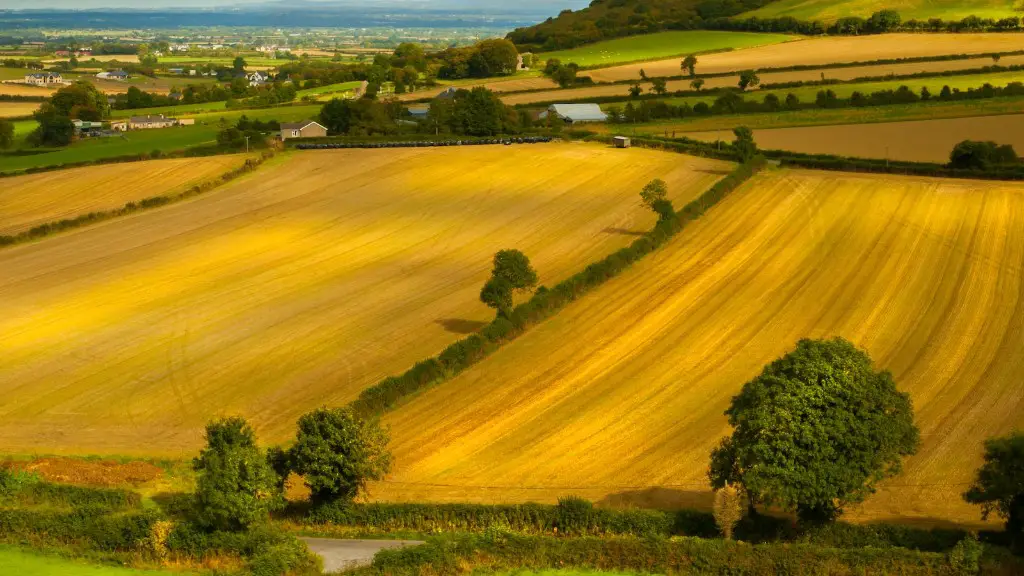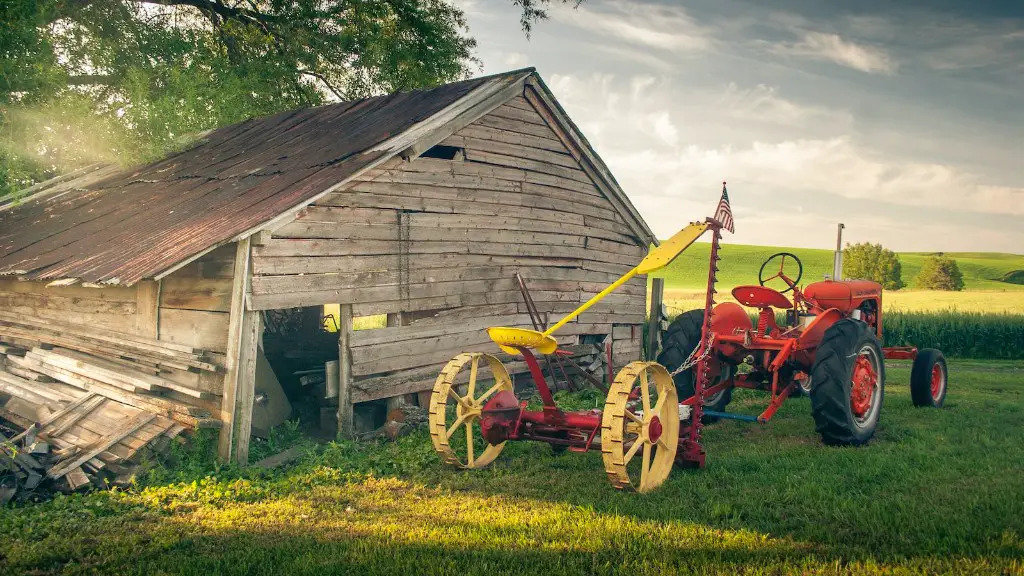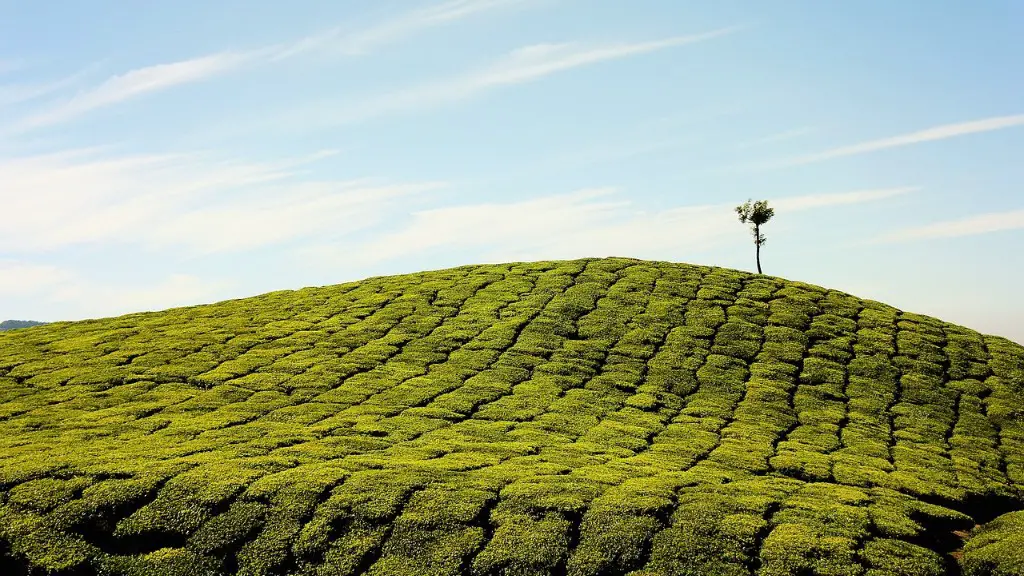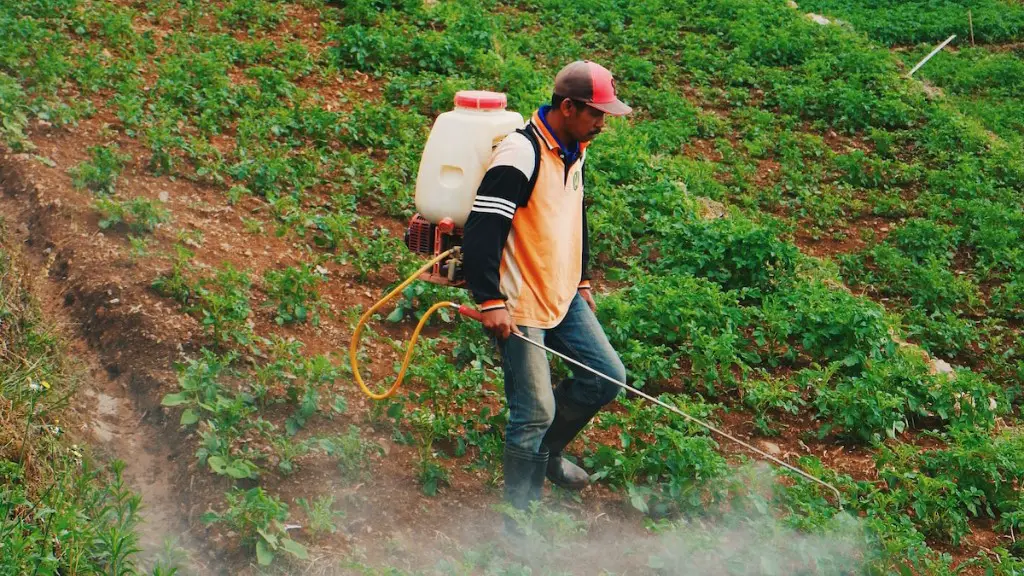The study of agriculture and life sciences includes the examination of plant and animal life cycles, the environment and how they interact with each other. It also involves the study of the land, water and climate.
Agriculture is the science and art of cultivating plants and livestock for human use. It includes the production of crops, livestock, and other products through farming and ranching.
The life sciences are the scientific study of living organisms and their interactions with the environment. This includes the study of the structure, function, and growth of plants and animals. It also includes the study of how these organisms interact with each other and their environment.
What can I do with life science and agricultural science?
There are many possible careers in the field of environmental impact assessment and monitoring. careers in this field may include working in restoration ecology, conservation biology, game farm management, ecotourism, sustainable agriculture, forestry, and organic plant management. community-based natural resource management is also a possible career in this field.
Botany, Agriculture, Horticulture, Fisheries, Forestry & Public Health are the various life sciences disciplines available in most of the science colleges and universities. They all come under the broad umbrella of life sciences and are dealing with different aspects of plant and animal life. Botany deals with the study of plants, their structure, function, growth, evolution, and classification. Agriculture deals with the production of food crops and other plant products. Horticulture deals with the cultivation of gardens and ornamental plants. Fisheries deal with the study of fish and other aquatic animals. Forestry deals with the study of forests and their management. Public health deals with the promotion and protection of the health of the community.
What do you do in agricultural science
Agricultural and food scientists are responsible for researching and developing new ways to improve the productivity and sustainability of field crops and farm animals. They also work to create new food products and develop better methods for processing, packaging, and delivering them. Agricultural and food scientists play a vital role in ensuring that our food supply is safe, nutritious, and abundant.
The field of systems biology is a relatively new field that is rapidly growing and evolving. It includes the fields of biology, aerobiology, agricultural science, plant science, animal science, bioinformatics, genomics, proteomics, synthetic biology, environmental science, public health, modeling, engineering of living systems, and many other types of scientific study. Systems biology is an interdisciplinary field that seeks to understand the function and behavior of biological systems at the cellular, molecular, and organismal levels.
What careers can I do with agriculture?
Horticulture is the science and art of growing plants for food, fuel, fiber, and ornamental purposes. Hydroponics is a subset of horticulture that deals with growing plants in water without soil.
There are many different career paths within horticulture and hydroponics. Some people may work in agricultural product sales, while others may be arborists or chemical research and development specialists. still others may work in consumer relations, corporate horticulture, or disease and pest management. equipment sales and extension specialist are also common positions within the field.
The demand for graduates in agribusiness, agricultural science, and food science has never been higher. This is due to a combination of factors that, when combined, make for a very favourable job market for those who are willing to pursue careers in these fields.
The first factor is the ever-increasing global population. As the world population continues to grow, so does the demand for food. This creates a need for more efficient and innovative food production, which in turn creates a demand for graduates with expertise in agribusiness, agricultural science, and food science.
The second factor is the impact of climate change. As the climate changes, so does the way we need to produce food. This creates a need for graduates who are able to adapt and innovate in the face of a changing climate.
The third factor is the rise of the middle class in developing countries. As the middle class grows in size and wealth, so does the demand for food. This creates a need for graduates who are able to meet the demands of a growing and affluent middle class.
All of these factors combined make for a very favourable job market for graduates in agribusiness, agricultural science, and food science. There has never been a better time
What are the 4 types of life science?
The life sciences are branches of science that deal with the study of living organisms. This includes the study of the structure, function, and behavior of living things. The life sciences encompass a wide range of fields, including biology, anatomy, astrobiology, bacteriology, and more.
Biology, zoology, botany, and ecology are all life sciences that explore different aspects of the natural world. These sciences continue to make new discoveries about animals, plants, and fungi, providing insight into the complex web of life on our planet.
What field is life sciences
The life sciences are touching every aspect of our lives, from the food we eat and the medicines we take, to the environmental issues that affect us all. In recent years, there has been an explosion of knowledge in the life sciences, and new technologies are emerging all the time. This is an exciting time to be working in the life sciences, and there are many opportunities for career growth.
There are many students who think that BSc Agriculture is a tough course but it is not true. It is a course where students learn about different aspects of agriculture and its related fields. The course is designed in such a way that it provides students with the knowledge and skills necessary to pursue a career in agriculture.
Which job is best in agriculture?
There are many different career paths that one can take in the field of agriculture. Agricultural engineers work to develop new ways to improve agricultural production and efficiency. Agricultural economists use their skills in economic analysis to help solve problems related to agriculture. Farm managers are responsible for the daily operations of a farm, including supervising workers, handling finances, and keeping track of crops. Soil and plant scientists conduct research to improve our understanding of how plants grow and how soils function. Conservation planners work to develop plans that will help protect our natural resources. Commercial horticulturalists grow and sell plants for use in landscaping and other commercial applications. Agricultural salespeople work to promote and sell agricultural products.
The Agricultural Sciences and Agricultural Management Practices are two very important subjects in the field of agriculture. Both of these subjects require hard work and dedication in order to be completed successfully. Zandberg says that in order to do well in either of these subjects, learners will have to put in a lot of effort.
What are the 5 branches of life science
Life sciences is an interdisciplinary field that covers the study of all living things. This includes cell biology, genetics, molecular biology, botany, microbiology, zoology, evolution, ecology, and physiology. The life sciences are important for understanding how living things work and how they interact with the environment.
Each of these topics is important in understanding the natural world and the creatures that inhabit it. Structure and function explains how an organism is put together and how it works. Inheritance and variation of traits looks at how characteristics are passed down from one generation to the next, and how those traits can change. Matter and energy in organisms and ecosystems covers how living things get the resources they need to survive and how they interact with their environment. Interdependent relationships in ecosystems explains how all the different parts of an ecosystem depend on each other. Natural selection and evolution looks at how species change over time to adapt to their environment.
What career field is agricultural science?
Agricultural scientists play a vital role in the agricultural industry, researching and developing new ways to improve crop yields, develop new strains of plants and animals, and improve soil health. They may specialize in a particular area such as agronomy, biochemistry, genetics, soil science, or animal science, and use their knowledge to help farmers and other agricultural professionals improve their operations. In addition to conducting research, agricultural scientists may also teach at universities or work in extension, providing information and expert advice to farmers and others in the agricultural industry.
Agriculture is one of the most important industries in the world, and it offers many job opportunities for youngsters. The best thing about these agriculture jobs is that they not only provide a good salary, but many other benefits to the employees as well. Some of these benefits include health insurance, paid vacation days, and retirement plans.
Conclusion
Agriculture includes activities such as crop production, animal husbandry, and forestry. The agricultural sector employs more than 1.3 billion people, which is about 18% of the world’s workforce. The sector is expected to grow by 2.5% per year.
The life sciences include the study of living organisms, including their structure, function, growth, and evolution. The life sciences are divided into various subfields, such as biology, medicine, and agriculture.
Agriculture and life sciences are essential for the human race to survive. They provide us with food, clothing, and shelter. They also help us to understand the natural world around us.





